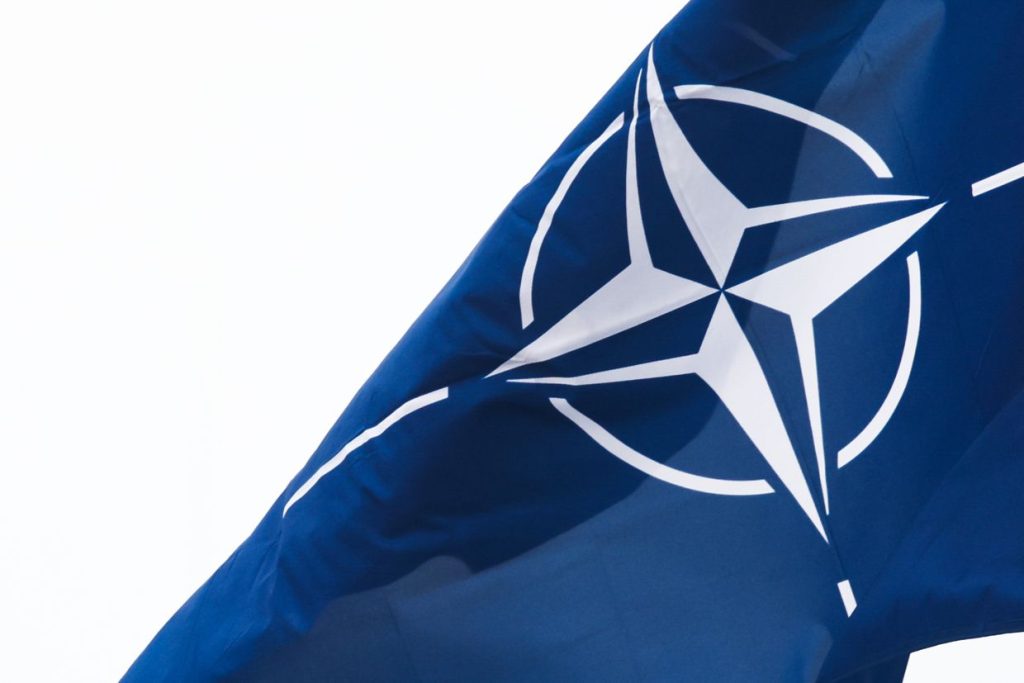Ukraine will not be advancing further towards NATO membership at this year’s annual summit, as reported by The Telegraph. Concerns about the possibility of drawing the alliance into a war with Russia have led both Germany and the United States to oppose offering Kyiv a definitive timeframe. This decision is expected to frustrate President Volodymyr Zelensky, who has been warned by other leaders not to demand the “impossible” from the alliance. Russia’s current gains along the front line and an anticipated offensive in the summer months have added to the cautious approach towards Ukrainian NATO membership. Last year, Zelensky criticized NATO as “absurd” when the alliance declined to extend an invitation for full-fledged membership at a meeting in Vilnius, Lithuania.
NATO’s top officials engaged in “expectation management” following last year’s summit, according to sources within the alliance, as it became clear that members in support of Ukraine’s accession had put excessive pressure on the decision-making process. Concerns have been raised that focusing on Ukraine’s membership dominated the summit discussions and created divisions among member states. The US and Germany are both wary of advancing Ukraine’s NATO membership this year, with worries about the threat that Russia poses to the alliance. President Zelensky and Ukraine as a whole are likely to be disappointed by this decision, as they had hoped for progress towards full NATO membership. The ongoing conflict in Ukraine, coupled with Russian military activities, has contributed to the cautious approach taken by NATO members regarding Ukraine’s NATO aspirations.
Last year’s summit in Vilnius, Lithuania, saw President Zelensky’s criticism of NATO as “absurd” when the alliance did not extend a membership invitation to Ukraine. This incident highlighted existing tensions and divisions within NATO regarding Ukraine’s aspirations for full NATO membership. The decision to forego further progress towards NATO membership at this year’s summit comes amidst concerns about the potential for a conflict with Russia. Both Germany and the United States have expressed reservations about pushing Ukraine closer to NATO membership, fearing the implications of provoking Russia. President Zelensky has been advised by other leaders not to demand the impossible from the alliance, given the current geopolitical realities and security concerns in the region.
The perceived threat posed by Russia to the rest of the alliance has significantly influenced the decision to halt Ukraine’s progress towards NATO membership at this year’s summit. NATO officials have had to manage expectations following last year’s summit, where the issue of Ukraine’s membership dominated discussions and created rifts among member states. The ongoing conflict in Ukraine and the potential for further Russian aggression have heightened concerns among NATO members about integrating Ukraine into the alliance. Despite previous efforts by Ukraine to secure full NATO membership, including a strong push at last year’s summit, the current geopolitical climate has led to a more cautious approach towards Ukraine’s NATO aspirations.
President Zelensky’s frustration at the lack of progress towards NATO membership for Ukraine is likely to continue, as the decision to halt advancements at this year’s summit reflects the alliance’s concerns about provoking Russia. The balance between supporting Ukraine’s security goals and avoiding a direct confrontation with Russia has proven to be a challenge for NATO members. The rifts created within the alliance over Ukraine’s membership aspirations have led to a more measured approach towards integrating the country into NATO. The ongoing conflict and security threats in the region have added complexity to the decision-making process within NATO, as members navigate the delicate balance between supporting Ukraine and avoiding conflict escalation with Russia. Ukraine’s path towards NATO membership remains uncertain as geopolitical realities and security concerns shape the alliance’s approach towards further integration.


